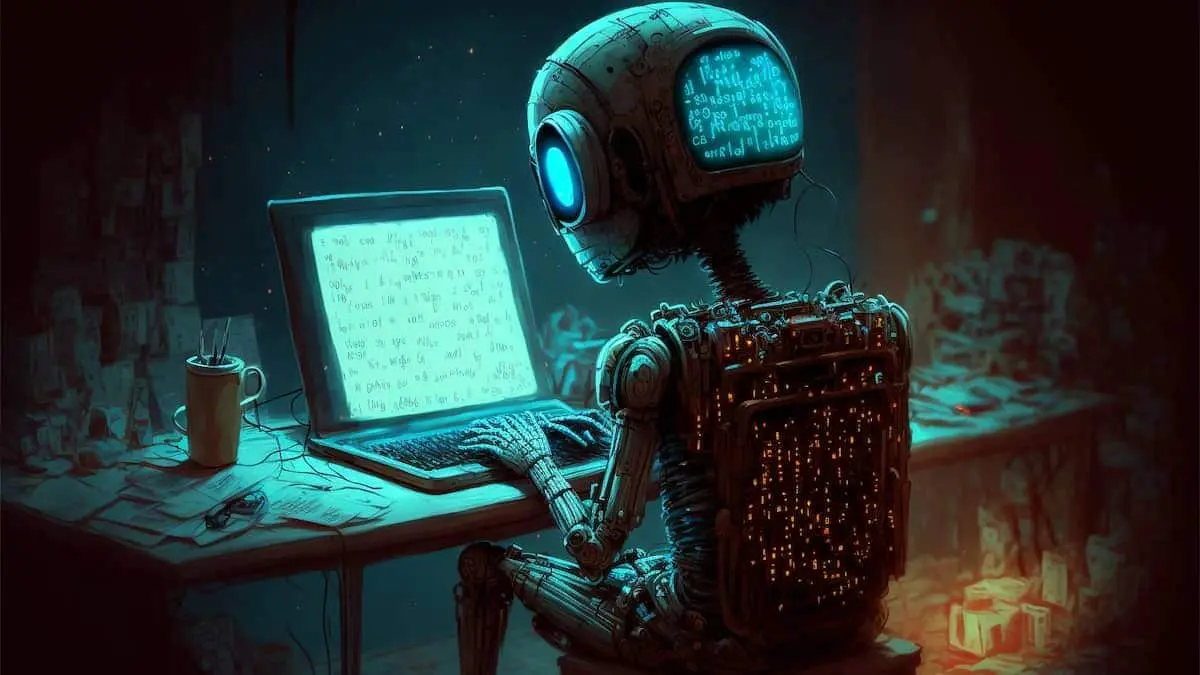The mere notion of AI crafting best selling novels is steeped in controversy. From the perspective of artists and writers, the idea seems implausible, as it’s challenging to envision AI capturing the essence of literary brilliance and emotion. Yet, as the boundaries of science and technology expand, certainties blur. The evolution of writing tools, from quills to computers, has now ushered in artificial intelligence (AI) as a potential creator in the literary landscape. As writers, we find ourselves captivated by the question: Can AI write Best Selling Books? This blog will unearth the potential of AI in book writing. We’ll explore the nuances, the uncertainties, and the balance between human creativity and AI’s emergent role.
Navigating AI’s Role in Book Writing
AI’s role in book writing has been evolving rapidly. It can assist by generating ideas, suggesting plot twists, or even generating portions of text. However, the creative process and unique human perspective remain crucial for crafting compelling and original Stories.
AI can be a useful tool, but the human touch remains essential for creating truly meaningful literary works. As writers collaborate with AI tools, ethical considerations come into play. Proper attribution and acknowledging AI-generated content are important to maintain transparency and uphold the integrity of the creative process.
While AI can speed up certain aspects of writing, the iterative nature of editing, refining, and polishing requires the nuanced judgment that only humans possess. And finding the right balance between harnessing AI’s capabilities and preserving the authenticity of human expression is key to navigating its role in book writing.

AI’s Current Landscape
Amidst rapid technological advancements, AI’s evolution captivates. ChatGPT by OpenAI demonstrates language processing versatility, with GPT-4 achieving a high bar exam score. Microsoft’s AI integration with Bing and Google’s Bard tool amplify AI’s impact, shaping search, communication, and business interactions. Let’s explore AI’s current landscape and its transformative potential:
- Rapid Evolution: AI’s rapid progress might obscure its capabilities for some.
- ChatGPT: OpenAI’s ChatGPT is a versatile language processing tool.
- GPT-4 Intelligence: The latest GPT-4 iteration showcases remarkable intelligence, achieving a high bar exam score.
- Microsoft’s Integration: Microsoft integrates AI with Bing, enhancing search capabilities.
- Google’s Bard: Google introduces Bard, an AI-powered tool, adding to the AI wave.
- Influence on Interactions: AI is reshaping how we search, communicate, and conduct business.
Can AI Write Books?
In a word, yes. Certainly! AI has made significant strides in book writing. Advanced models like GPT-3 can generate engaging narratives that resemble human writing styles. OpenAI’s GPT-3 has been trained on diverse texts, enabling it to produce contextually relevant content.
A noteworthy instance is the AI-written novel “The Day a Computer Writes a Novel,” where an AI model named “Benjamin” passed a Japanese literary competition’s first round in 2016. This event ignited discussions about AI’s role in literature.
Data analysis supports AI’s book-writing capabilities. The Allen Institute for Artificial Intelligence studied 1,000 scientific papers, finding AI-generated text to be coherent and informative. This indicates AI’s potential in various genres, including academic writing.
AI-generated content has limitations. It lacks true creativity, emotions, and deep human understanding, crucial for exceptional literature. Biases from training data can also lead to inaccuracies.
AI, exemplified by GPT-3 and projects like “The Day a Computer Writes a Novel,” displays promise in book writing. The blend of AI and data analysis hints at a new literary era where humans and machines collaborate. Yet, human creativity and empathy remain indispensable for outstanding literary creations.

AI in the Author’s Chair: Pros and Cons
The advent of AI in book writing introduces a landscape of possibilities, each with its own set of advantages and challenges. Let’s dive into the factors that tilt the balance, examining both sides of the AI-assisted literary coin.
Pros of AI-assisted Book Writing:
- Speed and Efficiency: AI accelerates content creation, beneficial for producing promotional materials, social media content, and even drafts of entire books.
- Data Analysis: AI’s data-crunching capabilities help identify trends and preferences, enabling authors to tailor their content to a target audience.
- Creativity Amplification: AI-generated content can surprise with innovative combinations, sparking fresh ideas and angles.
- Overcoming Writer’s Block: AI offers a constant stream of ideas, combating creative roadblocks that writers often face.
Cons of AI-assisted Book Writing:
- Lack of Emotional Depth: AI struggles to capture the intricacies of human emotions, leading to characters and narratives that lack authenticity.
- Authenticity Concerns: AI-generated content may lack a distinct voice, risking uniformity and plagiarism issues.
- Intuition and Subtext: AI grapples with deciphering subtle subtext and context, impacting the depth and layers of storytelling.
- Human Connection: Characters crafted by AI may lack the relatability that forms emotional bonds between readers and narratives.
Real Data Insights
A recent study conducted by a team of researchers at Stanford University revealed an intriguing facet. The study tasked AI models with creating literary content. While AI successfully crafted engaging narratives, it fell short in evoking emotional depth and complex character development. This real data analysis emphasizes that AI can replicate structure and language proficiency but struggles with the nuanced aspects that make novels resonate with readers.
Peering Into the Future
The path forward reveals a hybrid landscape where AI and human creativity harmoniously coexist. While AI-assisted content creation is on the rise, it’s clear that AI cannot fully supplant the creative soul of a human writer. As evidenced by real data analysis, AI’s strength lies in complementing and enhancing human efforts rather than replacing them. In this symbiotic future, innovative collaborations between AI and human creators lead to unprecedented levels of artistic expression and problem-solving.

Conclusion
The question “Can AI write Best Selling Books?” resonates with a fusion of intrigue and uncertainty and potential. Data analysis illuminates AI’s strides in generating content, yet it also underscores its limitations in capturing the essence of human emotions and nuances. As the literary world evolves, the writer’s world remains firmly anchored in the intricate dance between AI’s capabilities and the boundless reaches of human imagination.
Also Read: Evolution of CGI Technology In Movies



